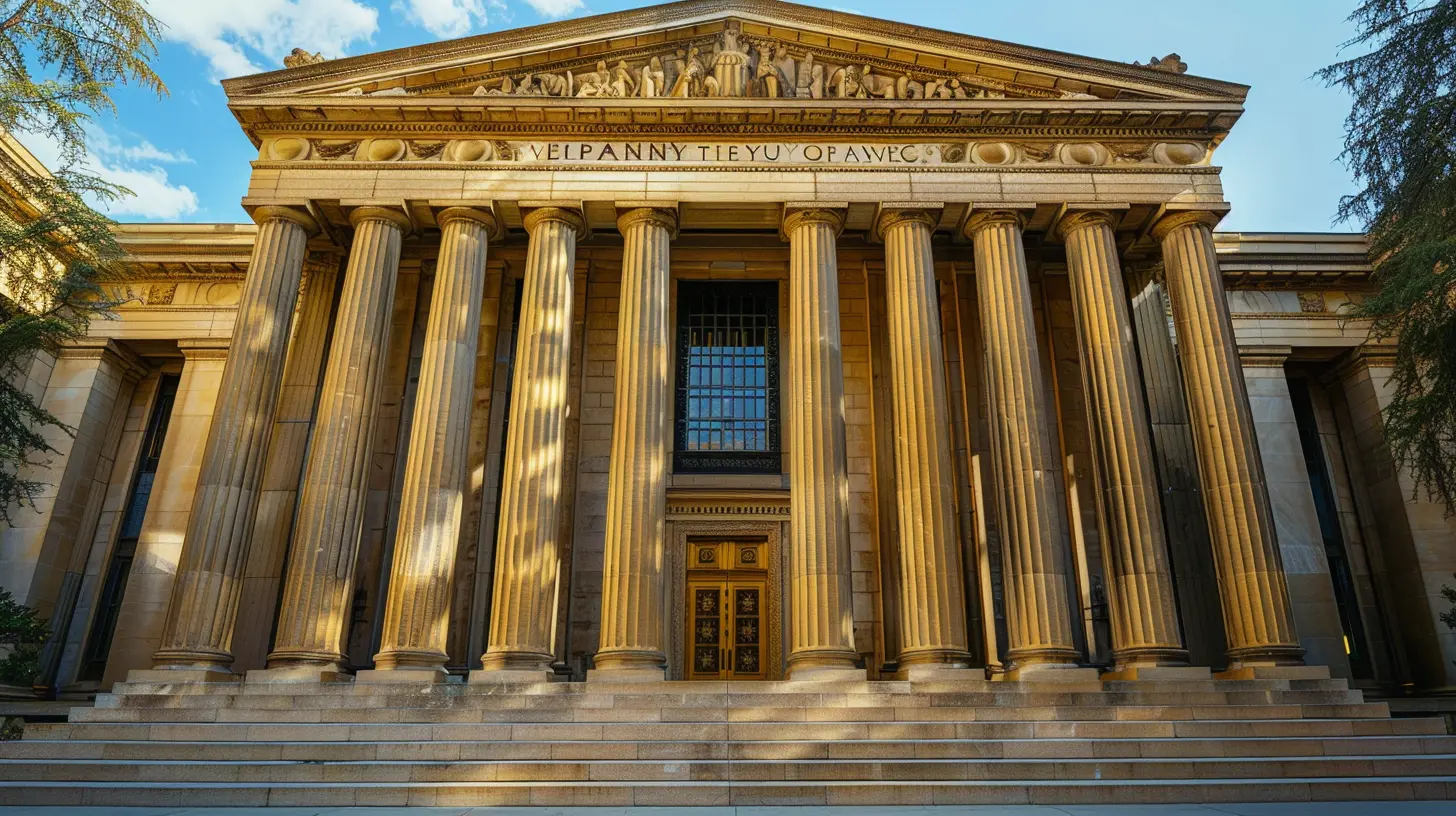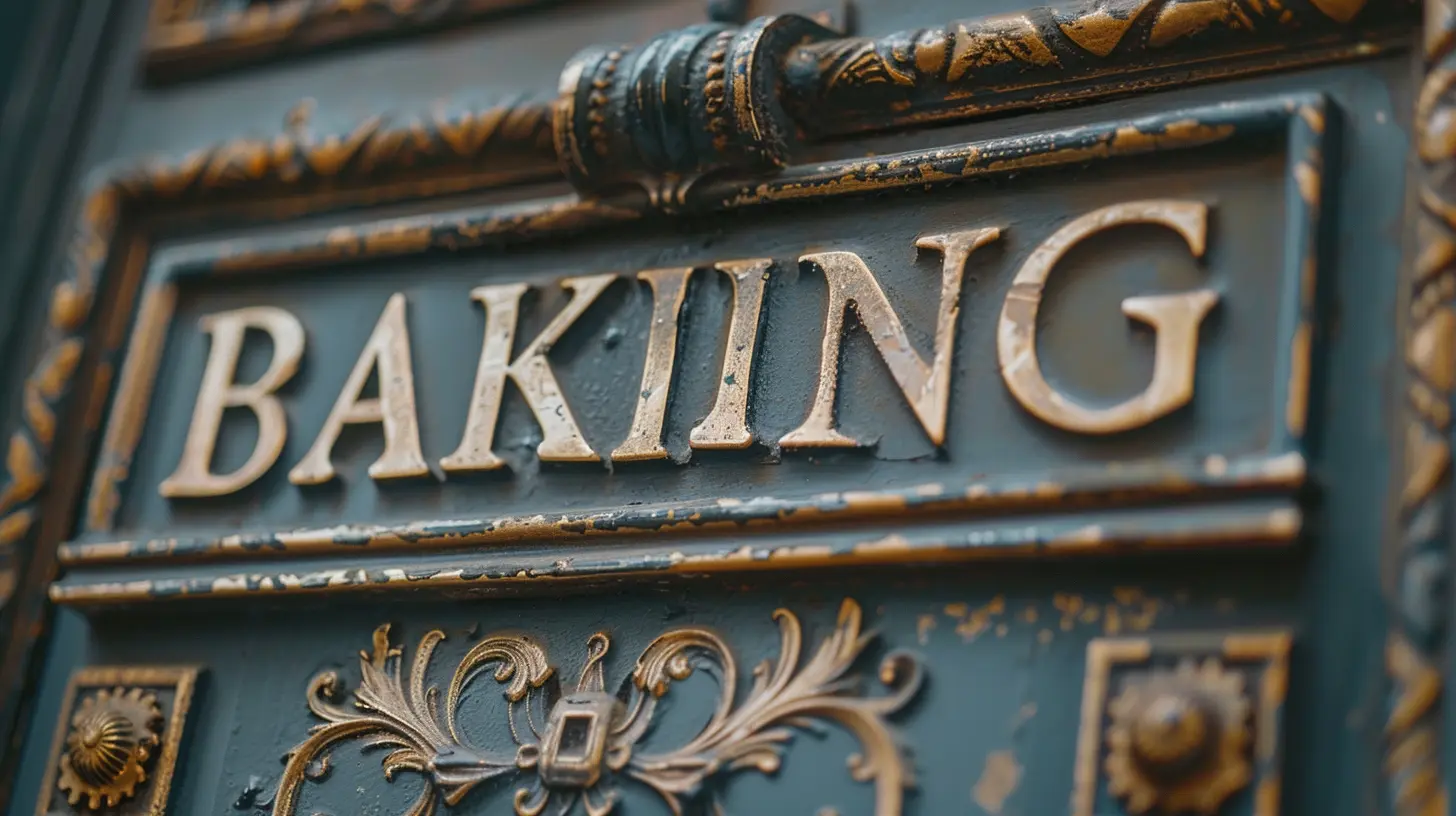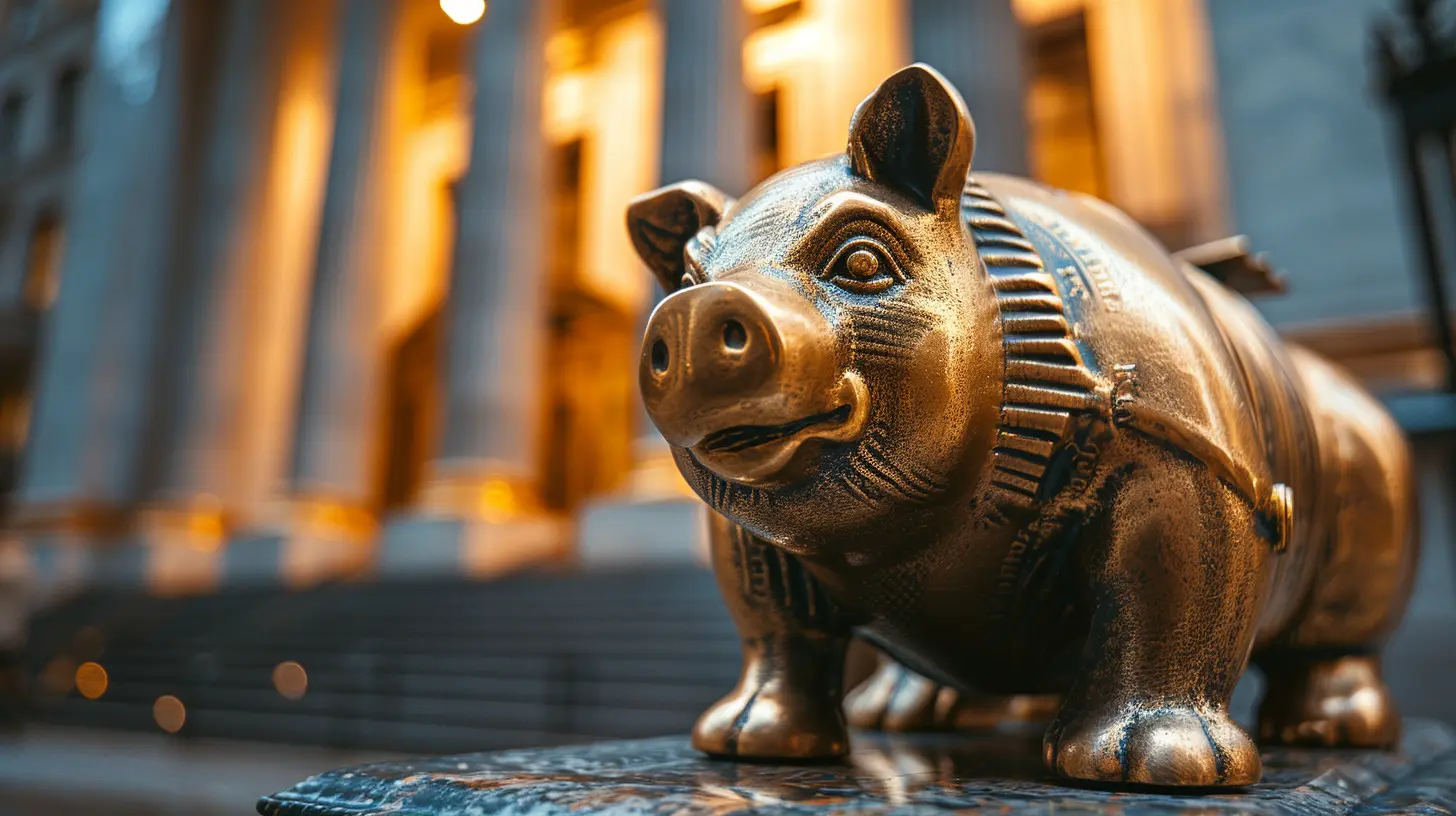Banking Basics: Understanding The Role of Financial Regulators
18 July 2025
Let’s face it—when most of us think of banking, we picture swiping debit cards, checking our balance online, or maybe sweating over a mortgage payment. But behind the scenes, there’s a whole other world keeping this financial machine running smoothly. Ever wonder who’s calling the shots on what banks can or can’t do? That’s where financial regulators step in.
Now, I know what you’re thinking: “Regulators? Isn’t that just government red tape?” While it might seem that way at first glance, financial regulators are more like the referees of the banking world. They’re not there to slow things down—they’re there to keep the game fair, safe, and transparent.
In this post, we’re breaking down the essentials of financial regulation and the crucial role these regulators play. Whether you're dipping your toes into personal finance or aiming to understand the system on a deeper level, stick around—we’re diving into the who, what, and why of financial regulation in a way that actually makes sense.
Why Do Financial Regulators Even Matter?
Let’s start with a simple question—what would happen if banks could do whatever they wanted? Think about it: no rules, no limits, just free rein.Sounds risky, right? That’s because it is.
Banks aren’t just safes for your cash. They lend money, invest, offer credit, and—believe it or not—they handle trillions of dollars. Without some kind of watchdog making sure they’re playing fair, we’d be risking another catastrophic financial crisis like the one in 2008. That crisis didn’t just shake Wall Street—it hit regular folks like you and me who lost jobs, homes, and retirement savings.
So, yeah, financial regulators matter—a lot.
What Exactly Do Financial Regulators Do?
Imagine you're organizing a neighborhood soccer tournament. You’d need someone ensuring the players follow the rules, right? Otherwise, it’d be chaos—people using their hands, games rigged, balls flying everywhere.That’s kind of what financial regulators do for the banking system.
Here’s a quick rundown of their key roles:
1. Protect The Public
At the core, regulators exist to protect everyday consumers from being taken advantage of. They make sure banks disclose important information, treat clients fairly, and don’t engage in shady behavior.2. Ensure Financial Stability
If a major bank goes under, the ripple effect can crush the whole economy. Regulators monitor risk levels and make sure financial institutions have enough cash on hand to stay afloat during downturns.3. Promote Transparency
Financial regulators require institutions to be clear and honest about their financial positions. That way, investors, customers, and other banks can make informed decisions.4. Prevent Financial Crimes
Money laundering, fraud, terrorist financing—you name it. Regulators are on high alert for suspicious financial activity. Without them, the financial system would be a playground for crime.
Meet The Main Players: Who Are The Financial Regulators?
Across the globe—and even within one country—there are multiple regulatory bodies. Let’s break down a few major ones, especially in the U.S. (but many countries have their own similar structures too).🏛 Federal Reserve (The Fed)
The Fed is the big boss in American banking. Officially, it’s the central bank of the U.S. It regulates commercial banks, sets interest rates, and controls the money supply.Think of it as the “mood setter” of the economy. If the economy’s overheating, the Fed steps in to cool it down. If things are sluggish, it tries to boost activity.
🏦 Federal Deposit Insurance Corporation (FDIC)
Ever seen that little sticker saying your deposits are FDIC insured? That’s thanks to the FDIC. This agency protects your bank deposits (up to $250,000 per depositor, per bank).It was created during the Great Depression to restore trust in the banking system. Can you imagine putting your money in a bank back then—not knowing if you'd ever see it again? Yikes.
📄 Office of the Comptroller of the Currency (OCC)
The OCC oversees and regulates national banks and federal savings associations. They ensure banks are operating safely and soundly and complying with laws.Basically, they’re like the hall monitors of the banking halls.
📉 Securities and Exchange Commission (SEC)
While not limited to banks, the SEC regulates the markets. They oversee everything from the stock exchanges to investment advisors and mutual funds.Why does this matter to banks? Many banks are also investment firms, and when they deal in securities, the SEC gets involved.
🚨 Consumer Financial Protection Bureau (CFPB)
This relatively new regulator (established in 2010) focuses on—you guessed it—consumers. The CFPB makes sure financial institutions are treating customers fairly, disclosing loan terms clearly, and not engaging in deceptive tactics.Ever applied for a credit card or mortgage and got a breakdown of the terms? Thank the CFPB.
So, How Do These Regulators Work Together?
Here’s the kicker: no single regulator does everything. It’s very much a team sport.Depending on the size and type of institution, a bank might be overseen by more than one regulator. For example, a national bank could be monitored by the OCC, the Fed, and the FDIC—all at once.
To the outsider, this can look like regulatory spaghetti. But in theory, it’s designed for checks and balances, so no one slips through the cracks.
They often share information, launch joint investigations, and coordinate during financial crises. Think of it like the Avengers—each regulator brings unique powers to the table, but they unite for the greater good.
International Financial Regulation: What About the Global Stage?
The financial world doesn’t stop at national borders. The 2008 financial crisis made one thing crystal clear—what happens in one country can shake markets worldwide. So, international regulation is essential.Key Global Regulators and Agreements
- Basel Committee on Banking Supervision: Sets international banking standards, especially around capital requirements (i.e., how much money banks must keep in reserve).- Financial Stability Board (FSB): Monitors the global financial system and coordinates policy across countries.
- International Monetary Fund (IMF) and World Bank: Not regulators per se, but they offer financial support and guidance to countries in crisis and push for regulatory reforms.
These organizations work to promote consistent rules worldwide, making it tougher for banks to exploit regulatory loopholes in different countries.
Why Should You Care About Financial Regulators?
I get it—this all might sound super technical and miles away from your daily life. But here’s why it matters:- They protect your money. Whether it’s your savings account or retirement fund, regulators ensure your assets aren’t being recklessly gambled.
- They keep banks honest. Without oversight, corporations may prioritize profits over people. Regulators keep that in check.
- They help avoid crises. Financial meltdowns don’t just hurt Wall Street—they hit job markets, housing, food prices, you name it. Good regulation prevents economic chaos.
So next time someone rolls their eyes at “regulations,” remember they’re why your paycheck clears and your debit card works as expected.
What Happens When Regulators Fail?
Let’s talk real talk.Regulators aren’t perfect. They’re made up of humans, after all—and sometimes, mistakes happen. Lack of oversight, poor coordination, or being too cozy with the banks they oversee can lead to disasters.
The 2008 crisis is a textbook case. Lax mortgage rules, risky investments, and failure to intervene early created a global nightmare. And while changes have been made since (like the Dodd-Frank Act), there's always room for improvement.
That’s why transparency and accountability in regulation are just as important as having the rules in the first place.
Are There Downsides to Financial Regulation?
Absolutely. Like most things in life, it’s a balancing act.Too much regulation can stifle innovation. Startups and fintech firms may struggle with compliance costs. Banks might become too cautious, limiting credit or increasing fees.
But too little? Well, we’ve seen where that leads—economic instability, loss of trust, and widespread financial pain.
The goal is finding that golden middle—a balance between freedom and safety.
What Does the Future Hold for Financial Regulation?
We’re heading into a new era of finance. Digital currencies, blockchain, peer-to-peer lending, and AI-driven banks are shaking up the game. These new realities raise tons of questions:- How do we regulate decentralized finance (DeFi)?
- What protections are in place for crypto investors?
- Can regulators keep up with the pace of innovation?
The answers are still unfolding. What’s clear is that regulators will play a major role in shaping the future financial landscape. And honestly, that’s both exciting and a little nerve-wracking.
Final Thoughts: Keeping The Financial World Trustworthy
Understanding financial regulators might not make for the most thrilling dinner conversation—but it’s vital knowledge. These agencies are the invisible safety net beneath our economy, working around the clock to ensure things don’t spiral out of control.When you log into your bank app, swipe your credit card, or apply for a student loan—financial regulators helped make that moment safe and straightforward. Sure, the system’s not flawless, but without these behind-the-scenes players, we’d all be a lot worse off.
So the next time someone complains about financial regulations, ask them: “Would you really want to drive on roads with no rules?” Probably not—and the same goes for our money.
all images in this post were generated using AI tools
Category:
Banking TipsAuthor:

Julia Phillips
Discussion
rate this article
1 comments
Colette McMurtry
Great overview! Understanding financial regulators is key to navigating banking—thanks for breaking it down so clearly!
August 9, 2025 at 12:56 PM

Julia Phillips
Thank you for your feedback! I'm glad you found the overview helpful in navigating the complexities of financial regulation.


